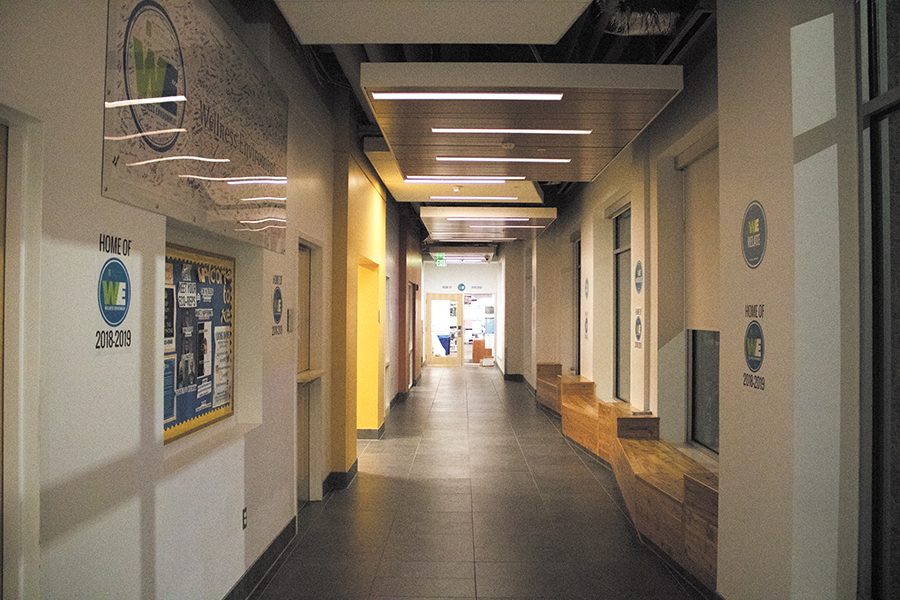First-year programmed housing plan moves forward
A hall on the first floor of CCRH
November 28, 2018
There will be 100 percent participation in learning communities by first-years by fall 2019.
Next school year, all first-year housing options will be in learning communities. Residential Life Director Rafael Rodriguez said that this has been a major goal for Reslife for the past three years.
Sophomores will still be able to choose traditional housing. There will be no new learning communities, just an expansion of the communities already on campus, like Outdoor Experience and the Wellness Environment, Rodriguez said.
“I think it is critically important to their success. We are seeing the data around retention and academic success,” Rodriguez said. “We see students who are returning talking about the impact learning communities had on their decision to return to UVM.”
Three years ago, ResLife implemented a plan that would lead to 100 percent participation by 2019, Rodriguez said.
As of this school year, there is 83 percent participation by first-years in learning communities.
The funding for 100 percent participation has been available since UVM launched learning communities three years ago. Now, the amount of students will meet the amount of resources already put in place, Rodriguez said.
Students and parents have been asking for the expansion of learning communities, he said.
Sophomore Kayley Noterman is in the Outdoor Experience program at UVM. “I’ve found a lot of people have avoided doing unprogrammed housing because that had put them on Trinity, and putting programs [on Trinity] might have the same problem,” she said.
Sophomore Lynnsey Trabka is also a member of the Outdoor Experience.
“I think it’s intended to be a good thing, so that first-years can try to find a pace they fit in at UVM but I think it also puts some unnecessary stress on them,” she said.
Trabka believes that having 100 percent participation is good for students who know what they want to do, but it’s intimidating for those who are unsure.
SGA President Ethan Foley, a junior, said he lived in programmed housing for two years.
“I personally think 100 percent programmed housing will be good for students,” he said.
The more students who have access to learning communities, the better, Rodriguez said.







